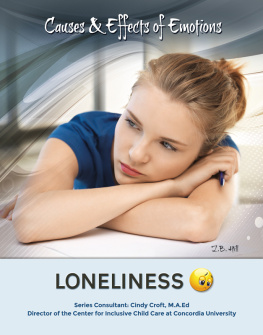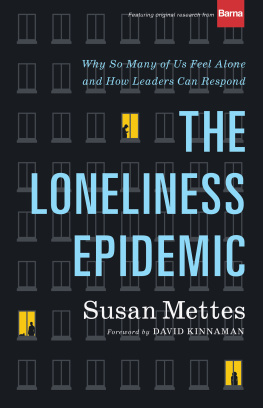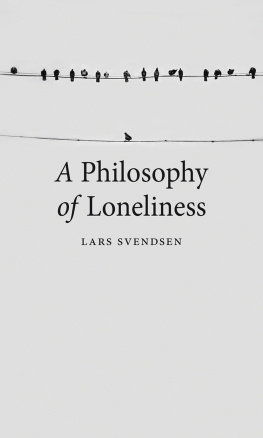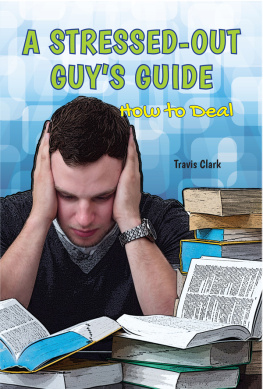Are You a Loner or Just Lonely?
Many people choose to be alone, but for those who don't, the loneliness they experience may feel overwhelming and insurmountable. A Lonely Guy's Guide: How to Deal discusses the negative effects of loneliness and provides research-based information on overcoming it. Take a quiz to figure out if you are an introvert or extrovert and discover how that affects your feelings about being alone.

At his old school, Kyle had always been a good student. He had been on the schools track and soccer teams. And he had always had plenty of friends. But then his father found a new job and the family had to move to a new state.
Kyle didnt know anyone at his new school, and no one seemed interested in him. He didnt try out for the soccer or track teams because he figured the coaches didnt know him and would cut him anyway. After school, he went straight home and up to his room. He felt lonely and miserable.
Everyone has felt lonely at one time or the other. Feelings of loneliness occur whenever you feel left out, forgotten, unneeded, and ignored. Feeling lonely is more than just being alone (which occurs when a person chooses to be by him- or herself). Loneliness is missing and longing for a connection with other people. Even though Kyle was in the middle of a crowd of kids at school, he felt very lonely because he really didnt know anyone.
The empty, lost feeling of being lonely can make anyone feel pretty bad. Thats why it is often referred to as a negative emotion. Other negative emotions you can experience when lonely include anger, sadness, and grief. Youre angry if you think other people arent being friendly. Youre sad because you think you have no friends. You feel grief over having lost old friendships.
Kyles feelings of loneliness began after the move from his old neighborhood. The stress of being in a new situation affected his behavior. Because Kyle didnt know how to make friends at his new school, he avoided people. He walked to classes alone, and he ate by himself in the school cafeteria. Although he was a good athlete, he didnt try out for the school teams. He didnt want to make an embarrassing mistake in front of kids he didnt know. As he avoided talking with other kids, he felt ignored by them. He retreated into his own world and cut off contact with others.
Social loneliness. Kyle was suffering from social loneliness. That is, he no longer had a social group to hang out with. People who have a difficult time making friends typically suffer from social loneliness. And a big reason they have trouble making friends is shyness.
Shyness is that uncomfortable, self-conscious feeling you have when in a new situation or when meeting a stranger. Kyle had never thought of himself as shy before he moved. But he hadnt had much experience dealing with new situations or meeting new people. Now in a new place, he really didnt know what to say or do when he met strangers.
Emotional loneliness. Kyle was also suffering from emotional loneliness. He didnt feel close to anyone. There was no one he felt comfortable with to talk about what was on his mind. He was angry with his parents because of the move, so he didnt want to talk to them either.
With emotional loneliness you dont feel close to anyoneyou have no one to share your thoughts and ideas with. You dont think anyone cares about you. And you dont think you can depend on anyone. You can also experience emotional loneliness even when you are part of a social group if you feel like you really cant be open or honest with anyone in that crowd.
People are lonely because they build walls instead of bridges.
Joseph Fort Newton
Kyle was feeling both social and emotional loneliness because of his familys move. But many other things can affect whether a person feels lonely.
Causes of loneliness. Sometimes you can feel a bit lonely if you come home from school and there is no one around to talk to. Youve finished your homework and chores, and you dont have any idea of what to do. Such bored, lonely feelings usually dont last long. They may be easily banished when you decide to call a friend, pick up a magazine or book, or go on the computer. You stop feeling lonely because youve become interested in something that has distracted you.
Your personality can also affect whether or not you feel lonely. A situation that might make one person feel lonely could cause no problems at all for someone else. For example, if you have an outgoing personality, moving from your old neighborhood and changing schools might be easy for you. But if you are shy, you may have trouble trying to figure out unfamiliar social groups. Making new friends can be hard. One person may be devastated having lost the old familiar routine of life. Another person may react to change with excitement. Everyone is different.
Most people feel strong pangs of loneliness after the loss of something or someone important in their lives. You can feel pretty rotten after a conflict with a good friend or a breakup with a girlfriend. If a relationship has permanently ended, it can hurta lot. Another very hard kind of loss to deal with is the death of someone you care about. It is normal to feel intense loneliness after this kind of loss.
When people lose someone they care about, they may steer clear of future relationships. This way, they figure, they will not get hurt again. However, dealing with loneliness by withdrawing from people and not forming new friendships or relationships is not a good solution. Such actions are not healthy ways of coping with loss. Avoidance doesnt bring about solutions to problems. And it doesnt help you feel better.
Learning to cope. The teen years can be a tough time. At this time in your life, you are examining your values, trying new things, and reducing your emotional dependence on your parents. At the same time, you are establishing stronger and closer relationships with peersthe people of your own age. If those peers dont respond in a good wayif you feel rejected by themit can be painful. After all, these are the people you are around the most and whose opinions you value.
At the same time, todays society makes it hard for boys to admit to having problems that cause emotional pain. Boys are expected to be strong and hide their emotions. This is especially true of emotions such as fear, hurt, or shame. These so-called negative emotions are thought to show weakness. However, it is important that you learn to understand and express your emotions, no matter what they are. Your emotions affect your behavior with others. When you understand and accept your feelings, you can work through your problems. Ultimately, youll feel better about yourself and have healthier relationships with others.
It can be hard to come out of your shell when you are feeling lonely. But the first step in overcoming loneliness is recognizing that certain actions, such as withdrawing and avoiding, only make things worse. There are healthier ways to deal with feelings of loneliness and to overcome them.

In a telephone survey of approximately a thousand high school students, the Horatio Alger Association found that 16 percent of respondents said a major problem for them was feeling like no one understands them. About 11 percent complained of loneliness or feeling left out as a major problem.




















